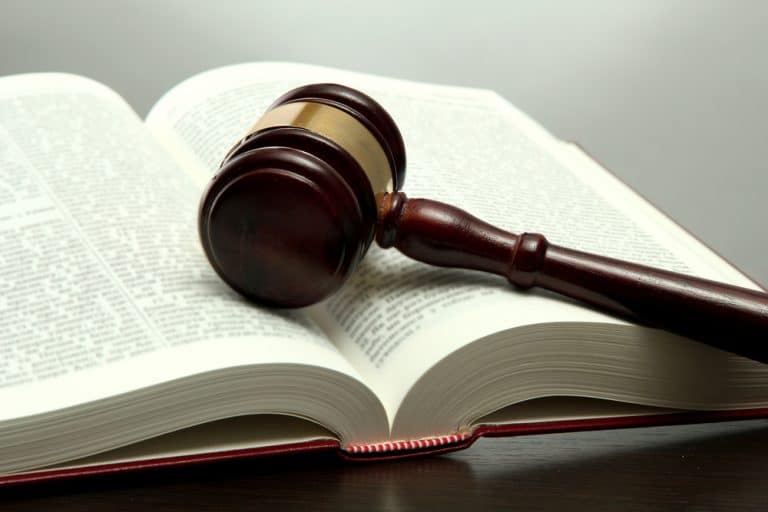Bail Bond Company in Golden, CO
View About Us
Browse Our Court Information
contact us
The Role of a Bail Bond Company in the Legal System of Golden, CO

Understanding Bail Bonds in Golden, CO
When someone is arrested in Golden, CO, navigating the legal system can be overwhelming. This is where a bail bond company like Patriot Bail Bonds Denver steps in. Our role is crucial in providing financial guarantees – known as bail bonds – to ensure that the accused will appear in court. This system is particularly vital in Golden, CO as it helps maintain the balance between respecting the accused’s rights and safeguarding community interests.
In Jefferson County, the legal procedures can seem intricate and confusing. With our in-depth knowledge and experience, we at Patriot Bail Bonds Denver help simplify these complexities. We guide our clients through each step, ensuring they understand the implications of their bail. Our expertise lies in adapting to the unique legal environment of Golden, CO, thereby making the bail process less stressful for our clients.
Experienced Professionals:
Our team at Patriot Bail Bonds Denver comprises seasoned experts familiar with Jefferson County's legal intricacies.
24/7 Availability:
We ensure that our 720-940-6160 is accessible around the clock for any bail bond needs in Golden, CO.
Commitment to Clients:
Our dedication to providing efficient and compassionate service has established us as a trusted name in Golden, CO.

How Patriot Bail Bonds Denver Assists in Jefferson County
Our commitment at Patriot Bail Bonds Denver goes beyond just providing bail bonds in Jefferson County. We offer a helping hand through each stage of the legal process. Our team is trained to offer support and advice on the legalities in Golden, CO. We understand that each case is unique, and so we tailor our services to meet individual needs, providing a personalized experience to our clients.
Moreover, we are dedicated to being accessible whenever our clients need us. Our 720-940-6160 line is available 24/7, ensuring that we are just a call away in times of need. Our aim is to ease the burden of legal challenges for our clients in Jefferson County. We strive for transparency and efficiency in our services, making the bail bond process as smooth and understandable as possible.

The Impact of Bail Bonds on the Legal System
The significance of bail bond companies like Patriot Bail Bonds Denver in Golden, CO, extends far beyond financial assistance. We play a vital role in enhancing the efficiency and humanity of the legal system. By providing bail bonds, we help in reducing jail overcrowding. This is crucial for the legal system, allowing it to function more effectively by focusing resources on critical issues rather than managing overpopulated detention facilities.
Furthermore, our services uphold the fundamental principle of ‘innocentauntil proven guilty.’ By enabling individuals to secure bail, they can prepare for their cases while continuing with their daily lives. This approach respects their dignity and rights, offering a fair chance to defend themselves in court. In Golden, CO, our involvement in the bail bond process ensures a more equitable and considerate legal system, one that values justice and the well-being of individuals. Reach out to 720-940-6160 today – our dedicated team is always available to assist you.
Have a question?
Established during the Pike’s Peak Gold Rush, Golden City quickly became a leading economic and political center of the region. Its geographic location made it a center of trade between the gold fields to the west and settlements to the east. Golden City was established on June 16, 1859, along Clear Creek west of Denver. The city is named after Thomas L. Golden. Other important businessmen and prospectors like William A.H. Loveland and George West were among the first people to settle in Golden. By the end of 1860, Golden City had been popularly elected the seat of Jefferson County and was capital of the provisional Jefferson Territory. As drafted in the territorial constitution, the capital of the Jefferson Territory was initially proposed to be Golden, then with a population of 700, as a result of its proximity to mountain mining towns, and greater ability to hold a congressional quorum than had Denver. Golden City was temporarily removed from the status of territory capital as a result of an act passed on November 5, 1861, by the territorial government. Colorado City, a small town to the south of Denver, became the new temporary territorial capital, but saw only one short event at this location. This status was quickly revoked, however, as on August 4, 1862, the territorial government voted formally to move back to Golden.
While the town lost much of its populace and leading citizenry during the Civil War for several reasons (ranging from military to economic), Golden City became capital of the federally recognized Colorado Territory on August 2, 1862, continuing as such until 1867. It was during the time period between 1862 and the early 1870s that a fierce railroad competition developed between Denver, ten miles (16 km) to the east, and Golden. By the mid-1860s, Golden held a merely honorific status as the territorial capital, rather than serving as the legitimate source of territorial power. Denver, the increasingly larger and more-developed city, was the focused core of important territorial occasions, with the Governor residing in Denver, and territorial government meetings occurring there as well. The citizens and supporters of Golden realized that a spur from Golden to the new transcontinental railroad, running through Cheyenne, Wyoming, 100 miles (160 km) to the north, was the only possibility for Golden to reemerge as the dominant heart of commerce in the territory. W.A.H. Loveland founded the Colorado Central Railroad on February 9, 1865, to do just this. With Golden beginning talk of creating a railroad, prominent Denver residents raced to do the same. In an appeal to the residents of Denver, The Rocky Mountain News, which was based in Denver itself, wrote an article imploring the citizens of Denver to vote to fund a railroad; “If we vote $500,000 in bonds to the Denver Pacific railway all is well. If we defeat those bonds, all hope of a railroad for the next two years is gone… Gentlemen of Denver, what will you do? The fate of your city is in your own hands.” The residents of Denver voted for the bonds, spurring construction of the Denver Pacific Railway. By 1869, the railroad race to Cheyenne was becoming less and less of a race, as the Denver Pacific Railway pulled ahead of the struggling Colorado Central Railroad. Realizing they were going to lose the race to Cheyenne, the Colorado Central began expanding west into mountain communities such as Georgetown, Black Hawk, and Central City, all areas founded on and focused in silver mining. Golden, having then sidetracked into servicing various close by mountain communities, continued to fall behind the pace set by the Denver railroad, and by 1870, officially lost the race to Cheyenne. However, The Colorado Central Railroad connected directly with Cheyenne seven years later, in 1877, but by that point, the race with Denver had been lost. Although Golden’s Colorado Central Railroad offered a challenge to Denver’s railroad, the better funded Denver Pacific Railway was able to connect to Cheyenne far more quickly than Golden, securing for Denver its long-term status as both capital and prominent city.
The Denver Tramway at Golden depot, 1909Golden City became the “Lowell of the West”, a regional center of trade and industry that boasted at various times three flour mills, five smelters, the first railroad into the Colorado mountains, the Coors Brewery, brick works, the only paper mill west of Missouri, clay and coal mines, and more. During the 1870s, it became home to three institutions of higher education, the Colorado University Schools, of which the Colorado School of Mines remains today. Golden was also home to an opera house and seven churches, including Colorado’s third (Methodist) church, oldest Baptist church, likely oldest Christian (Disciples of Christ) church, and first Swedish immigrant (Lutheran) church. The town was home to sizable populations of German, Swiss, Swedish, Italian and Chinese immigrants; five immigrants became mayors of Golden.
Learn more about Golden.